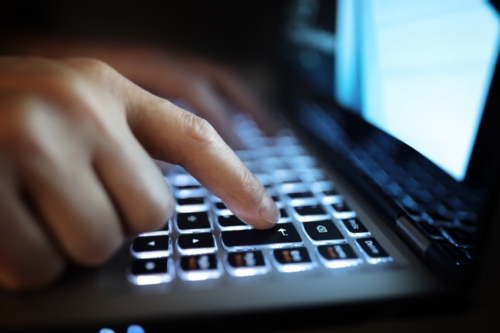 All those hours spent on Twitter and Instagram may be the reason you are not sleeping so well, suggests a new study.
All those hours spent on Twitter and Instagram may be the reason you are not sleeping so well, suggests a new study.
Researchers from the University of Pittsburgh surveyed almost 1,800 young adults between the ages of 19 and 32 in a longitudinal nationally representative survey over an eighteen month period. The survey assessed multiple health behaviors including measuring daily personal time spent using social media as well as weekly usage to various social media outlets.
Researchers also measured sleep disturbance by inquiring about participants’ problems with sleep, difficulty falling asleep, feeling refreshed upon waking up, and overall sleep quality over the past week.
Scientists have studied the effects of social media on sleep quality and duration in other countries; however, there have been no recent studies that have evaluated the effects among an American population. Since the use of social media platforms, including Facebook, YouTube, Twitter, Instagram, Snapchat, Pinterest, LinkedIn, and so forth are becoming more and more popular, it may play a significant role in negatively affecting sleep quality and duration.
Adequate quality of sleep and amount of sleep is necessary not only for day-to-day functioning but also to promote general good health. Poor sleep has been associated with negative health outcomes such as decreased cognitive performance, bad moods, diminished immune function, increased heart disease risk, weight gain and disrupted metabolism. It is recommended to sleep for seven to nine hours each night; however, 40% of Americans have reported getting less, with 67% of young adults reporting not getting enough sleep to properly function. Since 96% of young adults are using some form of technology prior to sleeping, the likelihood of social media disrupting sleep patterns is pretty high.
Young adults are the first generation exposed to a lifestyle of social media so it’s an ideal population to investigate its effects and health consequences prior to development of any chronic diseases. The researchers’ goals were to describe the extent of social media usage and the amount of sleep and sleep disturbances that were self-reported among young adults. They further investigated the association between social media usage and disruption of sleep patterns.
Findings revealed that the median daily social media usage was about one hour, whereas the median frequency of checking various social media platforms was thirty times per week. About 40% of participants reported having low sleep disturbances, whereas about 30% of individuals reported medium sleep disturbances and another 30% reported high sleep disturbances. Participants who spent more time per day on social media had twice as much of a risk of sleep disturbance compared to those who spent less time. Further, those that checked social media outlets more often throughout the week were three times as likely to have disturbed sleeping patterns compared to those who checked it less frequently.
“This may indicate that frequency of social media visits is a better predictor of sleep difficulty than overall time spent on social media,” explained author, Dr. Jessica Levenson. “If this is the case, then interventions that counter obsessive ‘checking’ behavior may be most effective.”
With the growing usage of social media among the young adult population and the negative impacts it can have on sleeping patterns and poor health outcomes, further long-term studies are warranted. They should aim to explore this relationship for a better understanding of the association between social media, sleeping patterns and overall health outcomes.
Sources for Today’s Article:
“Social Media Use in Young Adults Linked to Sleep Disturbances,” University of Pittsburgh, Janary,2016. http://www.upmc.com/media/NewsReleases/2016/Pages/levenson-primack-smsleep.aspx.
